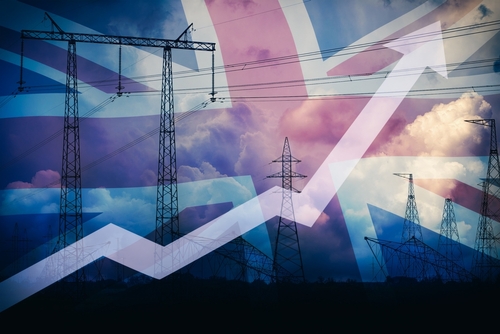|
|
Inflation in Britain reached 10.1 percent in September, rising from 9.9 percent the month before, as food prices jumped 14.1 percent, their fastest spurt since 1982, and negated the impact of fuels’ falling costs, the Financial Times reported.
Transportation costs ramped up 10.9 percent, furniture and household items 10.8 percent, and housing 9 percent.
Russia’s attack on Ukraine and resulting Western sanctions boosted food and energy costs around the world, as exports from the two countries were disrupted by war or blocked by the sanctions.
Those factors sharpened price rises that began last year as consumers began spending again as the COVID War wound down.
Food’s startling leap in cost “underlines the need for greater support for the most vulnerable households this winter over and above the energy price cap.”
The British government has pledged to cap residential energy bills at £2,500 for the next six months, no longer the two years that ousted prime minister Liz Truss had originally promised.
The shortened period for energy subsidies means inflation will run higher for longer, Resolution Foundation economist Jack Leslie told the FT.
“The bleak outlook means that family [purchasing power] will continue to fall sharply again next year,” he added.
Inflation will edge up to 10.5 percent this month and 11 percent in November, Paul Dales, Capital Economics’ chief U.K. analyst, predicted to the FT.
The new inflation report “highlights the danger that underlying inflation remains strong even as the economy weakens,” he said.
The Bank of England (BoE) has predicted that overall inflation could reach 13 percent in the near future; food’s soaring cost lends weight to that view.
The news that inflation remains unchecked—now running at more than five times that bank’s 2-percent target rate—puts greater pressure on the BoE to raise its key interest rate sharply when it meets 3 November.
The central bank has raised its rate steadily since March, most recently by a half-point to 2.25 percent.
On 12 October, the bank’s chief economist, Huw Pill, predicted a sharp hike in the rate in November.
However, that was while now-ousted prime minister Liz Truss was still flogging her program of drastic tax cuts and more government borrowing.
Markets also were pricing in dramatically higher interest rates as a result of Truss’s program, as high as 5.75 percent by May.
Now that Truss is gone, those expectations are being softened somewhat.
The bank’s key rate is unlikely to exceed 5 percent, BoE deputy governor Ben Broadbent said in a speech last week at Imperial College London.
A rate above 5 percent would deliver some “pretty material” damage to the economy, he said.
The bank needs to be more concerned about “weakening consumer demand and emerging slack in the labor market” than about inflation, Samuel Tombs, U.K. economist at Pantheon Macroeconomics, told the FT.
TREND FORECAST: There is no fast fix for Britain’s economic mess which was devastated by the draconian COVID War lockdowns that the mainstream media fail to note… as well as the sanctions imposed on Russia by NATO and the U.S. that has sharply driven up energy and food prices.
With inflation at 10.1 percent in September and the Bank of England’s inflation rate at 2.25 percent, the central bank will be only a marginal player in reducing inflation in the near term.
Inflation in the U.K. will slow as the nation’s recession deepens. The depth of the recession will determine how quickly inflation slows and whether it reverses.
However, in the near term, inflation will inflate, real incomes will fall, and the new Conservative government will not be willing to borrow heavily to bail out the economy.
Therefore, Britain’s recession will be long, deep, and painful.

